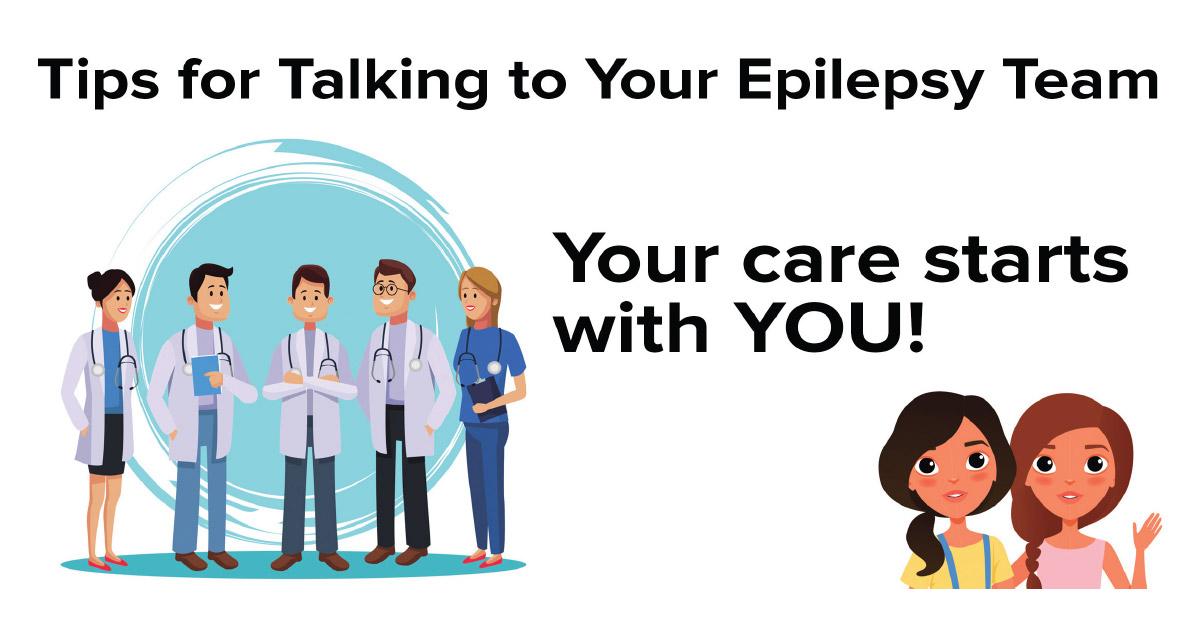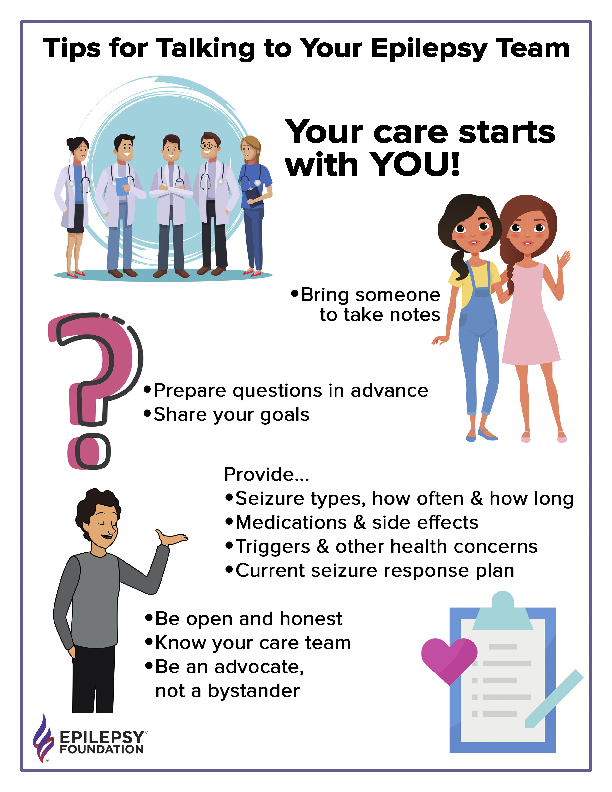Working With Your Healthcare Team

Download the Full Infographic
Talking with your doctor goes both ways. You want answers, but the doctor and other members of the healthcare team need information from you too! What you can tell your doctor and team is important to getting the right diagnosis and care! Here’s a few things to consider when talking to and sharing information with your healthcare team.
Look at your role on the healthcare team.
- The traditional approach to medical care is that the patient answers questions, and the doctor or other healthcare professional recommends the treatment.
- However, patient-centered and self-management approaches stress the central role of the patient and family on the healthcare team. These approaches are very important when people are coping with a health problem over time.
- Keep in mind that epilepsy is often ‘invisible’ to the healthcare providers - the seizures and other problems can’t be easily seen or diagnosed during an office visit.
- You, the person with epilepsy and family members, are central to what is going on.
- You bring the information to your doctor about what the seizures are like, what people see or don’t see, how often they occur, and how they affect your life.
- You must know how to take the medicines at home, follow a certain diet, make lifestyle changes or go through the process for surgery or other treatments.
- The people on your health care team should have latest information about epilepsy to help you, and be able to recommend what they think is best, given your individual situation.
- Together, you work towards your goals. Does your healthcare team work like this?
Don’t be afraid to ask questions.
- People work together best when they know what to expect from each other. Learn to ask questions about your role, your doctor’s role, and what to expect from each other.
- Learn how to talk about new ideas or treatments, other people who should be part of your team, and other concerns you may have.
- Some of these questions should be discussed early on in your treatment. However, your doctor may not be able to answer whether new treatments are appropriate for you until he or she gets to know you and finds out more about your seizures.
- Many discussions take time and you may need to set up special appointments to talk about your questions, new concerns, or next steps in your care.
Resources
Epilepsy Centers
Epilepsy centers provide you with a team of specialists to help you diagnose your epilepsy and explore treatment options.
Epilepsy Medication
Find in-depth information on anti-seizure medications so you know what to ask your doctor.
Epilepsy and Seizures 24/7 Helpline
Call our Epilepsy and Seizures 24/7 Helpline and talk with an epilepsy information specialist or submit a question online.
Tools & Resources
Get information, tips, and more to help you manage your epilepsy.




